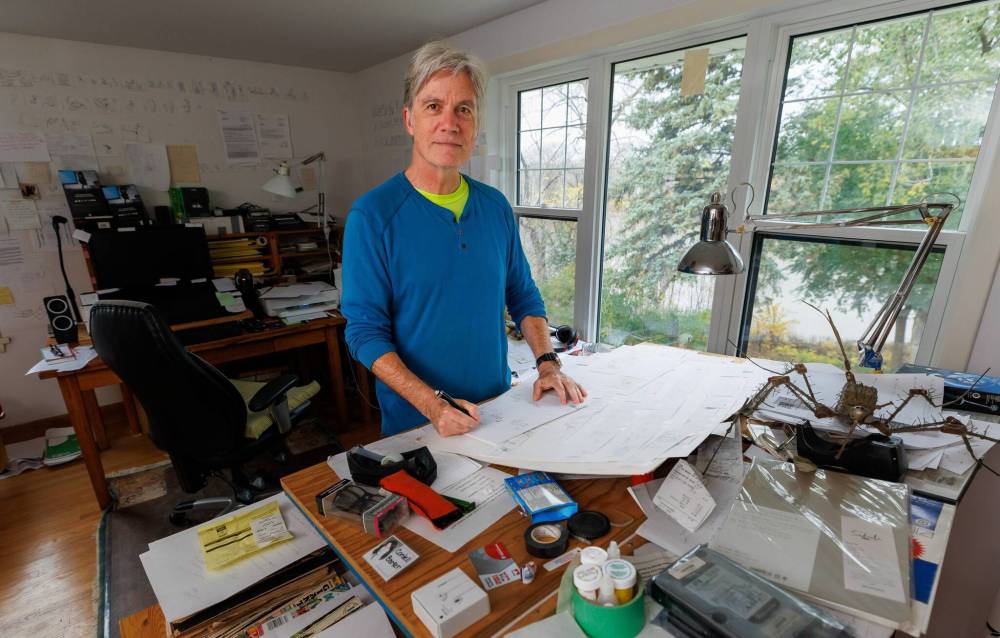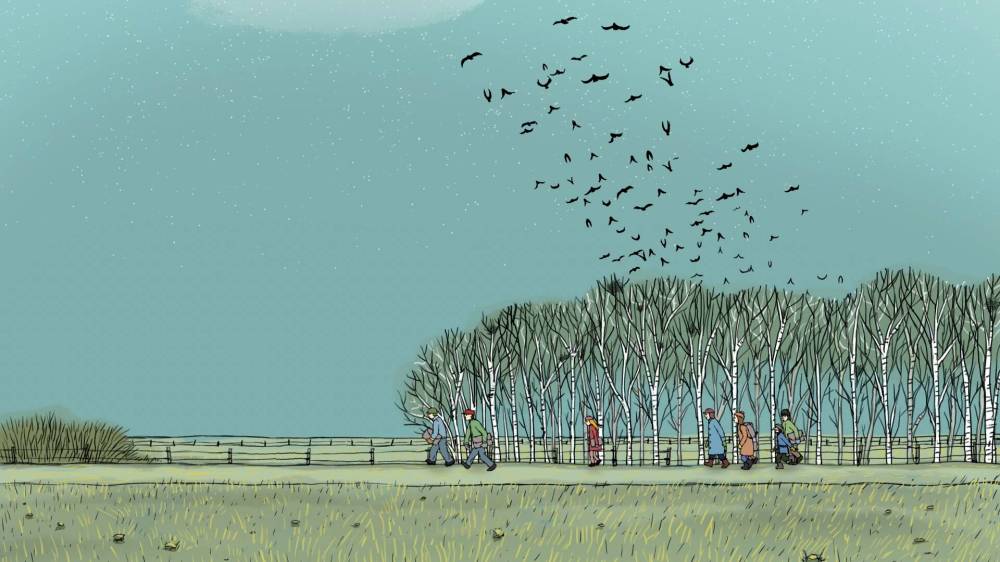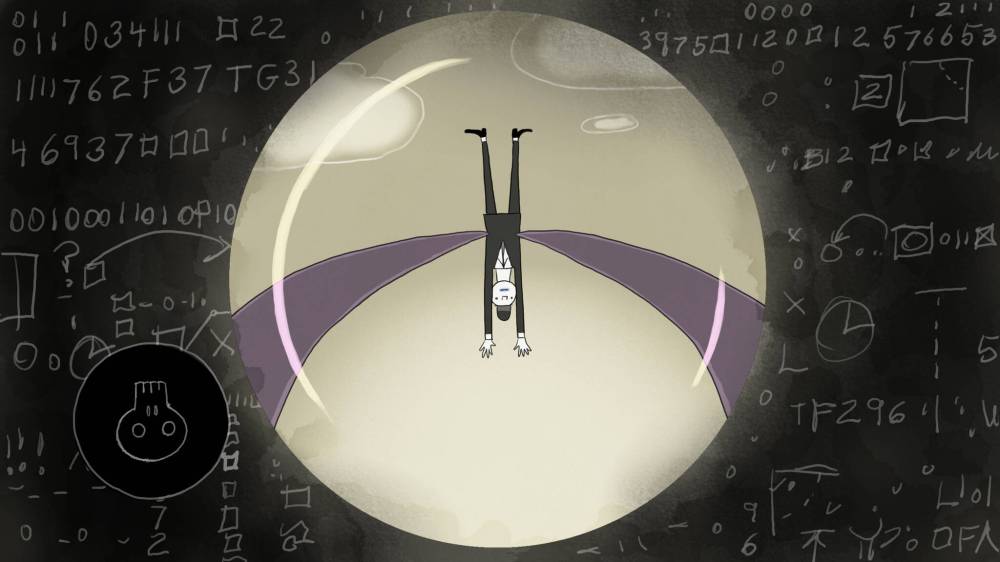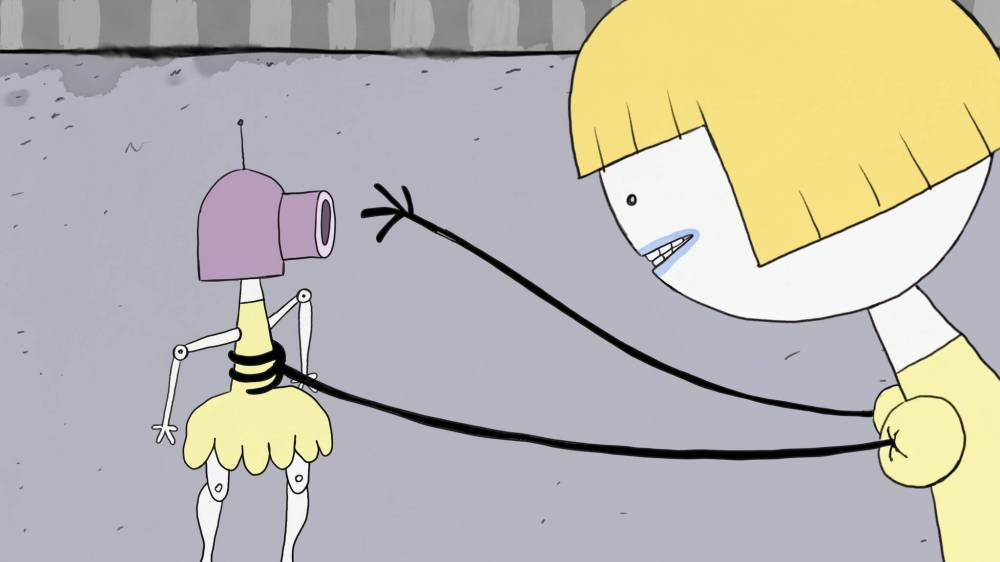Famed animator celebrates past, looks to troubling future
Read this article for free:
or
Already have an account? Log in here »
To continue reading, please subscribe:
Monthly Digital Subscription
$0 for the first 4 weeks*
- Enjoy unlimited reading on winnipegfreepress.com
- Read the E-Edition, our digital replica newspaper
- Access News Break, our award-winning app
- Play interactive puzzles
*No charge for 4 weeks then price increases to the regular rate of $19.95 plus GST every four weeks. Offer available to new and qualified returning subscribers only. Cancel any time.
Monthly Digital Subscription
$4.99/week*
- Enjoy unlimited reading on winnipegfreepress.com
- Read the E-Edition, our digital replica newspaper
- Access News Break, our award-winning app
- Play interactive puzzles
*Billed as $19.95 plus GST every four weeks. Cancel any time.
To continue reading, please subscribe:
Add Free Press access to your Brandon Sun subscription for only an additional
$1 for the first 4 weeks*
*Your next subscription payment will increase by $1.00 and you will be charged $16.99 plus GST for four weeks. After four weeks, your payment will increase to $23.99 plus GST every four weeks.
Read unlimited articles for free today:
or
Already have an account? Log in here »
One frozen evening when he was still in his late 20s, Cordell Barker started drawing housecats on the wall with a grease pencil.
Event preview
Cordell Barker
NFB Retrospective
• WAG-Quamajuq, 300 Memorial Blvd.
• Friday, 7 p.m.
• Free, limited seating
Barker, who had been working in the Portage Avenue animation studio of Kenn Perkins, had been wanting to strike out on his own as a filmmaker. Inspired by his own frigid abode, he decided to tell the story of an old man and his feline companion struggling to keep warm on a cold Winnipeg night.
He took some initial storyboards to the offices of the National Film Board, who weren’t interested in Barker’s narrative. But the NFB was developing a short called The Cat Came Back. Would Barker be interested in animating that?
Seven years later, in 1989, the resulting film — a zippy reimagining of the famed folk song — earned Barker the first of his two Academy Award nominations, setting in motion a career that the animator attributes not to outstanding artistic skill, but to a combination of good fortune, strong support (his wife hand-painted the animation cels) and an uncanny sense of timing.
“Everybody’s moment could be serendipity,” says Barker, 69, who is premièring two new works at a career-spanning retrospective on Friday at the Winnipeg Art Gallery.
One of those new pieces is a sunlit depiction of Manitoba’s creative past, while the other is freighted by Barker’s overwhelming distress for the world’s creative future.
An adaptation of William Kurelek’s A Prairie Boy’s Winter puts Barker’s ever-evolving stylistic approach in direct conversation with one of the country’s most beloved artists, an image-maker whose most enduring works reflect the hard-working ethos of the Great Depression and postwar eras.
MIKE DEAL / FREE PRESS Animator Cordell Barker is being celebrated Friday with a retrospective of his career.
In A Prairie Boy’s Winter, youth is an ongoing relay race of hardscrabble imagination, but Barker’s other new film, Good Luck to You All, suggests that the seasons of rugged self-sufficiency celebrated by Kurelek are on the verge of being lost forever.
Over the course of his 50-year career, Barker has produced films using a dizzying array of animation techniques. But Good Luck To You All is the first to declare itself “100 per cent human-made.”
It’s a label Barker knows now to be necessary.
For the past decade, Barker, who works “like a hermit” in his North Kildonan home studio, says he’s been increasingly consumed by the encroachment of artificial intelligence into every sphere of modern life.
“I’m a bit of a worrier. I’ll just sort of sit and see this thing and kind of go, ‘It’s not such a big deal.’ But then I’ll wonder, ‘What if that multiplies, and what if that multiplies exponentially? Where could that go?’ I’m always sort of looking at things and thinking that.
“With climate change, a lot of people sort of go, ‘I like the longer summers.’ And I’m thinking, ‘Are you nuts?’”
Merit Motion Pictures & Liquid Stars Inc. Cordell Barker has animated beloved illustrator William Kurelek’s A Prairie Boy’s Winter.
To better understand how others viewed the lingering presence of AI, Barker compiled more than 10 hours of interviews with neuroscientists, philosophers, academics and his own elementary school-aged grandniece, who consider the question of what it means to think.
Each morning while working on the film, Barker would go on an hour-long walk to listen to the interviews, attempting to find narrative unity in the huge chunk of original audio, an excursion that sometimes felt torturous.
“I almost got to the point where I was dreading my walk,” he says.
Barker’s difficulty came from knowing that his film’s message — about the value of human input in an era of decentralized, robotic decision-making — was becoming more prevalent with each passing day, the weight of human choices multiplying as artificial intelligence expanded its influence.
The impending doomsday implied by the film’s title — taken from a speech from Princess Elizabeth given on the eve of the Second World War — became less a matter of science fiction and more one of realistic developments on the creative battlefield.
NATIONAL FILM BOARD OF CANADA Good Luck to You All deals with the value of human input in a world increasingly dominated by robotic decision-making.
Decades after launching his career with a grease pencil in hand, Good Luck To You All is Barker reading the writing on society’s walls and wondering how wrong things could possibly go.
At Friday’s free retrospective, organized by the NFB, Merit Motion Pictures and Liquid Stars Productions, Barker’s most recent works will screen alongside four of his NFB animations: The Cat Came Back (1988), Strange Invaders (2001), Runaway (2009) and If I Was God (2015), a film that revisits Barker’s accidental reanimation of a science-lab frog.
After the screenings, Barker will participate in a Q&A moderated by film historian Gene Walz, with live Ukrainian music provided by the Sedo Trio during the reception. The program begins at 7 p.m.
ben.waldman@freepress.mb.ca
NATIONAL FILM BOARD OF CANADA Cordell Barker’s Good Luck to You All is 100 per cent human-made, he says.

Ben Waldman is a National Newspaper Award-nominated reporter on the Arts & Life desk at the Free Press. Born and raised in Winnipeg, Ben completed three internships with the Free Press while earning his degree at Ryerson University’s (now Toronto Metropolitan University’s) School of Journalism before joining the newsroom full-time in 2019. Read more about Ben.
Every piece of reporting Ben produces is reviewed by an editing team before it is posted online or published in print — part of the Free Press‘s tradition, since 1872, of producing reliable independent journalism. Read more about Free Press’s history and mandate, and learn how our newsroom operates.
Our newsroom depends on a growing audience of readers to power our journalism. If you are not a paid reader, please consider becoming a subscriber.
Our newsroom depends on its audience of readers to power our journalism. Thank you for your support.
History
Updated on Thursday, October 23, 2025 10:04 AM CDT: Corrects image credits
Updated on Thursday, October 23, 2025 10:31 AM CDT: Corrects image credits
